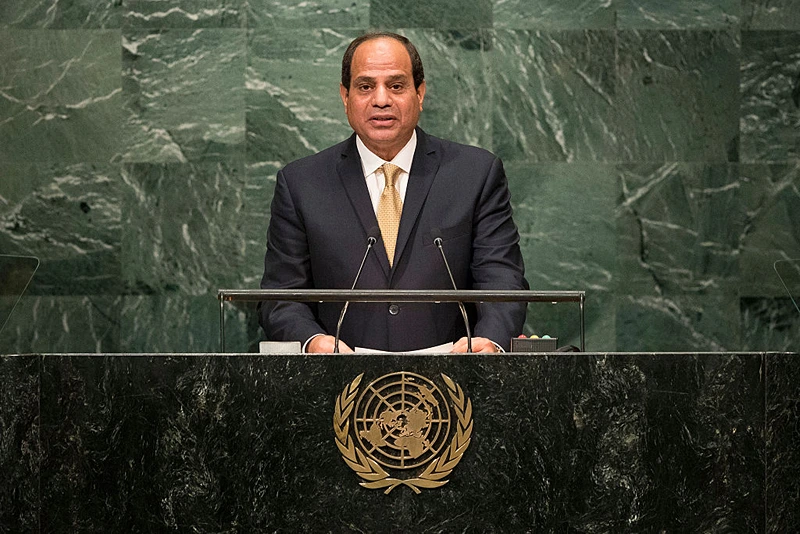
OAN Roy Francis
UPDATED 10:51 AM – Tuesday, April 11, 2023
According to the leaked United States intelligence documents that were obtained by the Washington Post, Egyptian President Abdel Fattah el-Sisi had reportedly developed a plan to secretly produce and ship around 40,000 rockets to Russia.
The top-secret documents with the information about Egypt are a part of the many classified materials that were leaked recently. National Security Council spokesperson John Kirby has warned that the material is not meant for the public, however, he has declined to confirm or deny the validity of the information.
A portion of the top-secret documents, which was dated February 17th, summarized conversations between the Egyptian president and his military officials about supplying Russia with the rockets. In order “to avoid problems with the West,” Sisi had also instructed his officials to keep the production and shipment of the rockets secret.
An Egyptian official, identified by the Washington Post as Mohamed Salah al-Din, who serves as the Minister of State for military production, has said that he would have his people to “work shift work” if they needed to in order to be able to “repay Russia for unspecified help earlier.”
The nature of the help received by Egypt from Russia was not clarified, however according to Reuters, Egypt had increased its reliance on Russian wheat recently due to disruption to the global market after the war in Ukraine began.
The war had put a heavy strain on Egypt, which is the world’s number one importer of wheat globally. The country had been receiving more than 80% of its wheat imports from Russia and Ukraine in recent years.
Ambassador Ahmed Abu Zeid, the spokesman for Egypt’s Foreign Ministry, has replied to inquiries in regards to the documents and the conversations recorded in it by saying that Egypt’s position has always been “based on noninvolvement.”
“Egypt’s position from the beginning is based on noninvolvement in this crisis and committing to maintain equal distance with both sides, while affirming Egypt’s support to the U.N. charter and international law in the U.N. General Assembly resolutions,” he said. “We continue to urge both parties to cease hostilities and reach a political solution through negotiations.”
President Joe Biden had visited Egypt in November to meet with the Egyptian president and had commended the nation for its stance on the war.
“In the face of Russia’s war in Ukraine, Egypt has spoken up strongly at the United Nations, and that is appreciated very much as well,” Biden had said
Secretary of State Antony Blinken had also met with El-Sisi in January where he had emphasized the importance of the partnership between the U.S. and Egypt, and the solidarity with Egypt as the Middle Eastern nation deals with the economic impact of Russia’s war.
The close relationship between the U.S. and Egypt has been strained recently due to the newly inked agreements between Cairo and Moscow. Among the agreements are having Russia build a “massive railway workshop” in Egypt. Russia’s state atomic Corporation, Rosatom, had also began constructing Egypt’s first nuclear power plant in 2022.
According to Sarah Margon, Director of U.S. foreign policy at the Open Society Foundations said that the recent revelation in the leaked document raised the question of whether the U.S. “should continue to defend and support” the Middle Eastern nation if its government is seeking a short-term solution which “is likely to have serious negative global impacts”
The Washington director for Human Rights Watch, Sarah Yager, who had previously called for an arms embargo on Egypt citing its “security forces’ involvement in abuses” also said that the rocket sales would enable Russia to cause more abuses abroad.
“I would also question whether any U.S. security assistance is being used to manufacture these arms that might go to Russia,” Yager said.
The leaked documents are part of the many classified files that were posted to social media websites in the last two months. The Justice Department has announced that they have opened a probe in the Pentagon leaks and the White House has continuously warned the media from publishing any sensitive materials.
Stay informed! Receive breaking news blasts directly to your inbox for free. Subscribe here. https://www.oann.com/alerts

